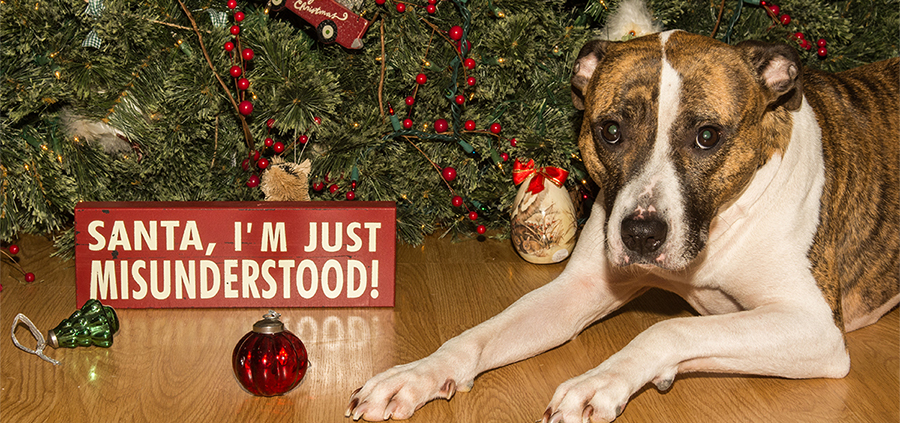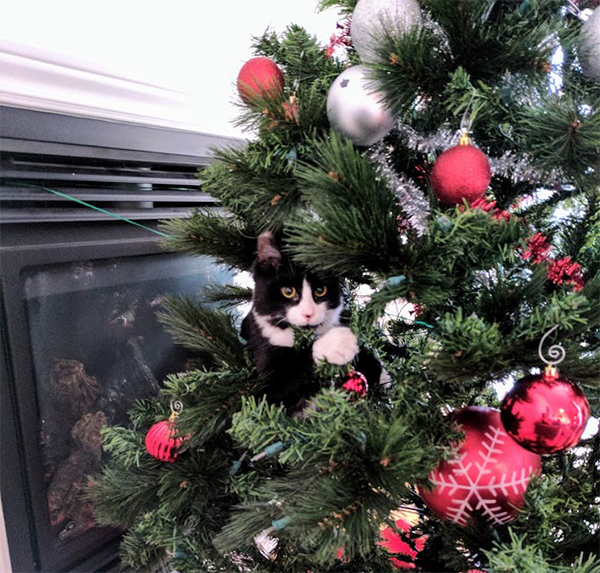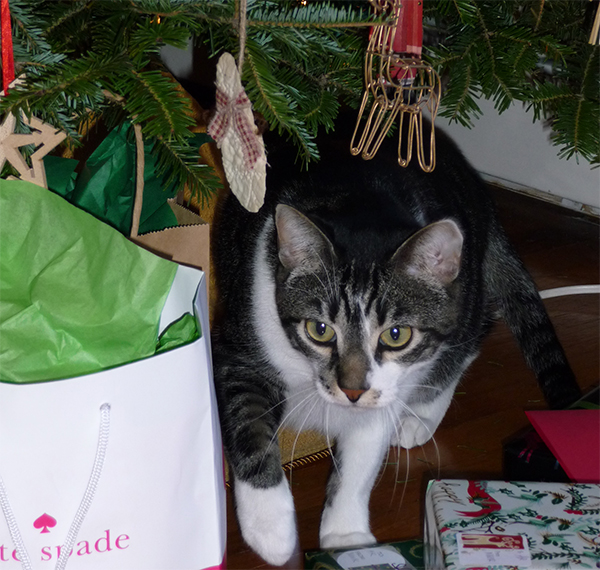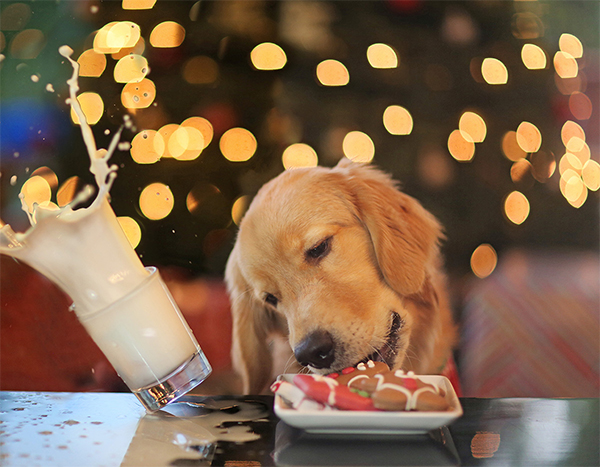Pet Safety Tips You Need to Know This Holiday

‘Tis the season for giving and good cheer as well as for decorating our homes with lights, live trees, pretty plants, and more. Though beautiful, these holiday additions can pose significant health threats to pets. Learn what holiday decorations are dangerous for pets, so you can deck the halls beautifully and worry-free.
Christmas Trees & Pet Safety

Central to most homes during the holidays is a Christmas tree, and many like to decorate with a live tree. If you prefer live to faux, here are some dangers your tree may pose for your pet:
- Tree water: Stagnant tree water breeds bacteria, which, if consumed, could make your pet sick. Tree water can also contain fertilizer or other contaminants harmful to your pet. Lastly, any additives you put in tree water can make your pet sick if consumed.
- Tree needles: Tree needles and branches can cause blockages that often need surgical intervention if consumed.
- Tree flocking: Who doesn’t love a white Christmas? Flocking is pretty, but it’s mildly toxic to pets if consumed.
- Falling trees: Cat and dog owners should anchor their real or faux tree to the ceiling to prevent their pets from knocking it over. The falling tree can hurt your pet, but spilled water and other debris can make for a tempting snack before you’re able to tidy the wreckage. Never mind that broken ornaments and accessible wiring pose their own problems.
Effects of Poinsettias & Other Holiday Plants if Eaten
Red, white, and pink poinsettias make a beautiful addition to your holiday home as do Christmas cacti and other plants; however, many plants are toxic to pets if consumed. Among those are:
- Amaryllis
- Mistletoe
- Balsam
- Pine
- Cedar
- Holly
- Poinsettias
Veterinary intervention is essential if your pet consumes one of these plants. See what plants are dangerous and to what effect before decorating. The ASPCA has a list for dogs and for cats to help you.
How to Keep Pets Safe from Ornaments, Lights, & Other Holiday Décor

Needless to say, if natural décor isn’t pet-friendly, then synthetic décor surely isn’t. For example:
- Electric light strands: Cords and light strands can lead to shocks and burns if consumed.
- Candles: Flickering candles can look fun, but if upended, unattended candles can result in fires or burns.
- Ornaments: If broken, ornament fragments could cause cuts and other external injuries as well as internal blockages and toxicity if consumed. Homemade ornaments are also potentially toxic.
While you can’t resolve all of these issues, certain ones, like flickering candles and broken ornaments can be minimized by buying plastic ornaments for the tree or by getting battery-operated holiday candles.
Holiday Treats that Aren’t Pet Friendly

Lastly, and much to the disappointment of many pets, is that the sweets and savories of the holidays are not good for them. Cookies and candies, holiday chocolates, dough, and table scraps from holiday meals often contain artificial flavorings or sweeteners or are simply foods that can make your pet very sick. It’s best to keep your pet well fed with a healthy and satisfying food that you know is safe.
Keeping Your Pet Safe
You can also throw in a few treats here or there like the natural ones made by Old Mother Hubbard, so your pet doesn’t feel like he’s missing out too much on the holiday cheer. In addition to going with a synthetic tree and unbreakable décor, you can also get a few extra toys to distract your pet with during the holidays. This will reduce the hazards around your holiday home making the season truly merry and bright (and a little more stress-free).
Being aware of holiday hazards in your home is one way to have a happy, safe time with your pet. Feeding your pet natural foods that will keep him full and healthy is another. Wellness Pet Foods are made with natural ingredients because our mission is to help guarantee a long and strong life for your pet.




